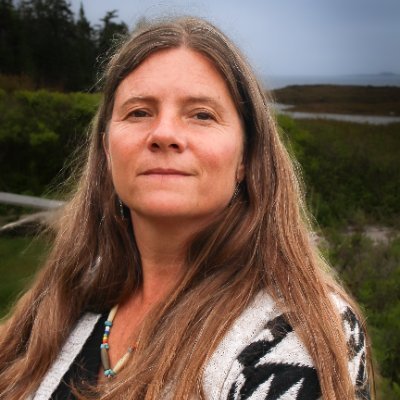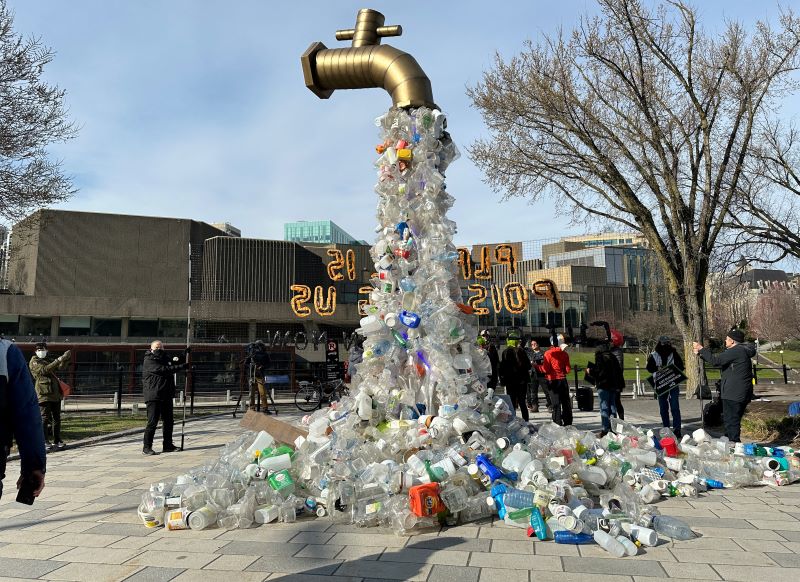Heather McTeer Toney is the executive director of Bloomberg Philanthropies’ Beyond Petrochemicals Campaign.
Living in a community on the edge of an acres-wide petrochemical plant in Texas or Louisiana means that you can see, smell, and taste plastic pollution every day. All too often leaders who are charged with making decisions about plastic pollution are too far removed from the impact and easily miss the risks to human health and the environment.
This past week, a thousand miles away, delegates from over 170 countries met in Ottawa, Ontario, to discuss just that: pollution from plastic. This meeting marks the fourth session of the UN Intergovernmental Negotiating Committee (INC-4), where leaders are working to develop a legally binding, global plastics treaty ahead of final negotiations set for November.
As decisions move forward, Beyond Petrochemicals is supporting our community partners to help bring their lived experience to the negotiation process. These frontline leaders are working hard to push for a fair and effective treaty that puts public health, human rights, and the environment first.
But the petrochemical industry is at work too, placing pro-plastic ads near negotiating rooms and touting false solutions like “chemical recycling.” Industry executives continue to downplay the role of plastics in the issue of pollution, even as a new report from Lawrence Berkeley National Laboratory found that plastic production emits as much carbon pollution as 600 coal-fired power plants annually. By 2050, carbon pollution from plastics production could triple, taking up as much as 20 percent of our remaining carbon budget and undercutting global efforts on climate change.
Canadian minister vows to fight attempts to weaken plastic pollution treaty
It can be hard to relate to the fluctuations of international treaty negotiations or new scientific reports when you spend each day worried about breathing in the pollutants being negotiated. It’s easy to feel like just a number—some statistic about economic hardship or disease. That’s a problem.
Firsthand experience of pollution
Communities know firsthand the impact of plastic pollution at every step of the process. Plastic pollution begins when companies drill and extract oil and gas and use it to process and manufacture petrochemicals for plastics. More than a third of the carbon pollution generated by plastic production happens during the extraction and refining of fossil fuels. And it’s not just carbon pollution, this industry is suffocating communities in places like Texas, Louisiana, and the Ohio River Valley with millions of tons of toxic, cancer-causing pollution.
The global plastics treaty can be a landmark international agreement to address the escalating crisis of plastic pollution at every step – but the only way to get an effective treaty is with the perspectives and input of the communities on the frontlines of petrochemical pollution. Because when communities are trusted to lead, real change is possible.
I have seen the power of communities declaring they are more than a number. Two women separated by a thousand miles and seemingly just as many differences dared to fight the expansion of the petrochemical industry in their community – and they won.

Jill Hunkler, Ohio Valley resident and grassroots leader
Jill Hunkler, a seventh-generation Ohio Valley resident, is a fierce advocate for her community. Faced with plans to displace her friends and neighbors to build the largest ethylene plant of its kind in the United States, she became a leader of a grassroots movement. Phone calls, emails, and meetings helped put the pressure needed on state and federal leaders and stalled what was once seen as inevitable.
Together, they were more than a number and in fact helped avert 1.7 million tons of carbon emissions per year.

Sharon Lavigne of RISE St. James
Sharon Lavigne, a retired teacher from St. James Parish, Louisiana, is tired of the moniker given to her community, “Cancer Alley.” Decades of unabated industrial development have overwhelmed this primarily Black parish leaving a wake of disease and hardship. Sharon knows her parish is more than this, that it is more than a number.
Founding the group RISE St. James, Sharon is leading a multi-generational movement to block a petrochemical and plastics facility poised to produce as much pollution as three new coal plants. Their fight against the Formosa Sunshine plant has gained global attention thanks to her leadership, spurring legal actions and rallying work to ensure this plant is never built.
Sharon and Jill are not alone. Last year, a total of five newly planned petrochemical facilities were blocked by similar community efforts. And last week, after nearly two years of community-led organizing and opposition, Encina Development Group withdrew its plans to build a toxic chemical recycling facility along the Susquehanna River in Point Township, Pennsylvania.
People coming together makes a difference. As the plastics industry works to expand – to build more petrochemical plants and create more plastic than we could ever possibly need – the perspectives of frontline leaders are essential if we are going to arrive at a global plastics treaty that supports a stable climate, a livable planet, and a just future. Alongside powerful community organizers, my colleagues and I are proud to continue this effort to stop the expansion of the petrochemical industry.
Heather McTeer Toney is also the author of Before the Streetlights Come On: Black America’s Urgent Call for Climate Solutions. She was appointed by President Barack Obama to serve as a regional administrator of the Environmental Protection Agency (EPA) for the Southeast region. In 2004, she became the first woman and African American to be elected mayor of Greenville, Mississippi, a position she held until 2011.
